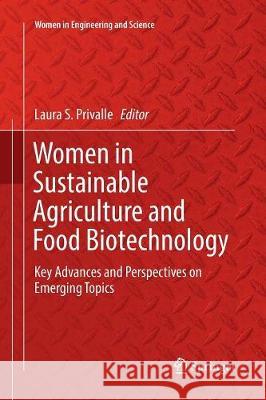Women in Sustainable Agriculture and Food Biotechnology: Key Advances and Perspectives on Emerging Topics » książka
topmenu
Women in Sustainable Agriculture and Food Biotechnology: Key Advances and Perspectives on Emerging Topics
ISBN-13: 9783319848471 / Angielski / Miękka / 2018 / 153 str.
Women in Sustainable Agriculture and Food Biotechnology: Key Advances and Perspectives on Emerging Topics
ISBN-13: 9783319848471 / Angielski / Miękka / 2018 / 153 str.
cena 201,72 zł
(netto: 192,11 VAT: 5%)
Najniższa cena z 30 dni: 192,74 zł
(netto: 192,11 VAT: 5%)
Najniższa cena z 30 dni: 192,74 zł
Termin realizacji zamówienia:
ok. 22 dni roboczych
Bez gwarancji dostawy przed świętami
ok. 22 dni roboczych
Bez gwarancji dostawy przed świętami
Darmowa dostawa!
Kategorie:
Kategorie BISAC:
Wydawca:
Springer
Seria wydawnicza:
Język:
Angielski
ISBN-13:
9783319848471
Rok wydania:
2018
Wydanie:
Softcover Repri
Ilość stron:
153
Waga:
0.23 kg
Wymiary:
23.39 x 15.6 x 0.86
Oprawa:
Miękka
Wolumenów:
01
Dodatkowe informacje:
Wydanie ilustrowane











